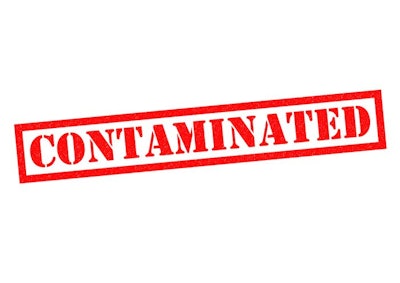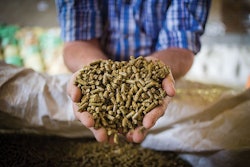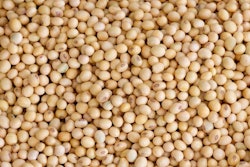
The U.S. Food and Drug Administration (FDA) is investigating an animal feed company after it sold horse feed that contained a drug used in cattle and poultry feed that is toxic to horses, leading to the deaths of six horses.
The FDA has found that Gilman Co-Op Creamery in Gilman, Minnesota, mixed cattle feed containing monensin on the same day that it mixed the special-order horse feed. FDA said the facility did not perform adequate cleanout of the equipment after mixing the cattle feed to prevent the drug from being mixed into the horse feed, which it mixed after the cattle feed.
Monensin is an ionophore animal drug approved for use in cattle and poultry feed to increase feed efficiency and prevent coccidial infections. Monensin is highly toxic and potentially lethal to horses, even at relatively low levels, according to the FDA.
Horses exposed to monensin may show a range of symptoms including weakness, unsteady gait, inability to get up, diarrhea, abdominal pain, excessive urination, heart failure or death. Acute toxicity may progress rapidly enough that the horse doesn’t exhibit many symptoms prior to death. Monensin toxicity is rarely treatable, and the majority of horses die or are euthanized to avoid pain and suffering. Horses that survive monensin toxicity may suffer permanent damage to the heart or muscles and are unlikely to fully recover.
A horse’s reaction to monensin will vary depending on the amount of exposure and the horse’s individual tolerance based on the breed, diet and metabolism. The horses that consumed the feed from Gilman Co-Op Creamery experienced symptoms and died within 12-48 hours of consuming the feed, the FDA said.
One farm loses six horses in a month
On June 9, a horse farm in Minnesota began feeding its horses feed mixed by Gilman Co-Op Creamery. That evening, one horse became ill and was not able to stand. Two days later, the horse had to be euthanized. On June 12, the owner found two additional horses that were lying down in the pasture that were unable to stand. One horse died that day and the other horse was found dead in the pasture the next day, June 13. Over the course of the next month, three more horses died. In total, six horses died after eating the feed containing monensin.
While the FDA said the affected horse feed was a special order for the farm and not distributed to other farms, it said it is issuing a notice to make feed manufacturers and horse owners aware that monensin in horse feed is a concern. The FDA continues to investigate this case and will take action as appropriate to protect animal health.
The FDA said feed manufacturers making medicated feeds need to remain vigilant about taking appropriate steps to eliminate unsafe carryover of medications into feed intended for different species. Guidance for Industry #235: Current Good Manufacturing Practice Requirements for Food for Animals and Guidance for Industry #72: GMPs for Medicated Feed Manufacturers Not Required to Register and be Licensed with FDA are two guidance documents that provide further explanation and examples of how to meet the FDA’s requirements for the safe manufacture of animal feed.
People who think their horses are ill from consuming adulterated feed should immediately stop feeding the suspect food to the ill horse and any other horses, (regardless of whether they show symptoms), and contact their veterinarians.
As a general practice, medicated feeds intended for one species should be kept away from other species.
People who think their horses have become ill after consuming adulterated feed should contact their veterinarians.
The FDA encourages horse owners and veterinarians to report complaints about this and other animal feed products electronically through the Safety Reporting Portal or by calling their state’s FDA Consumer Complaint Coordinators.

















